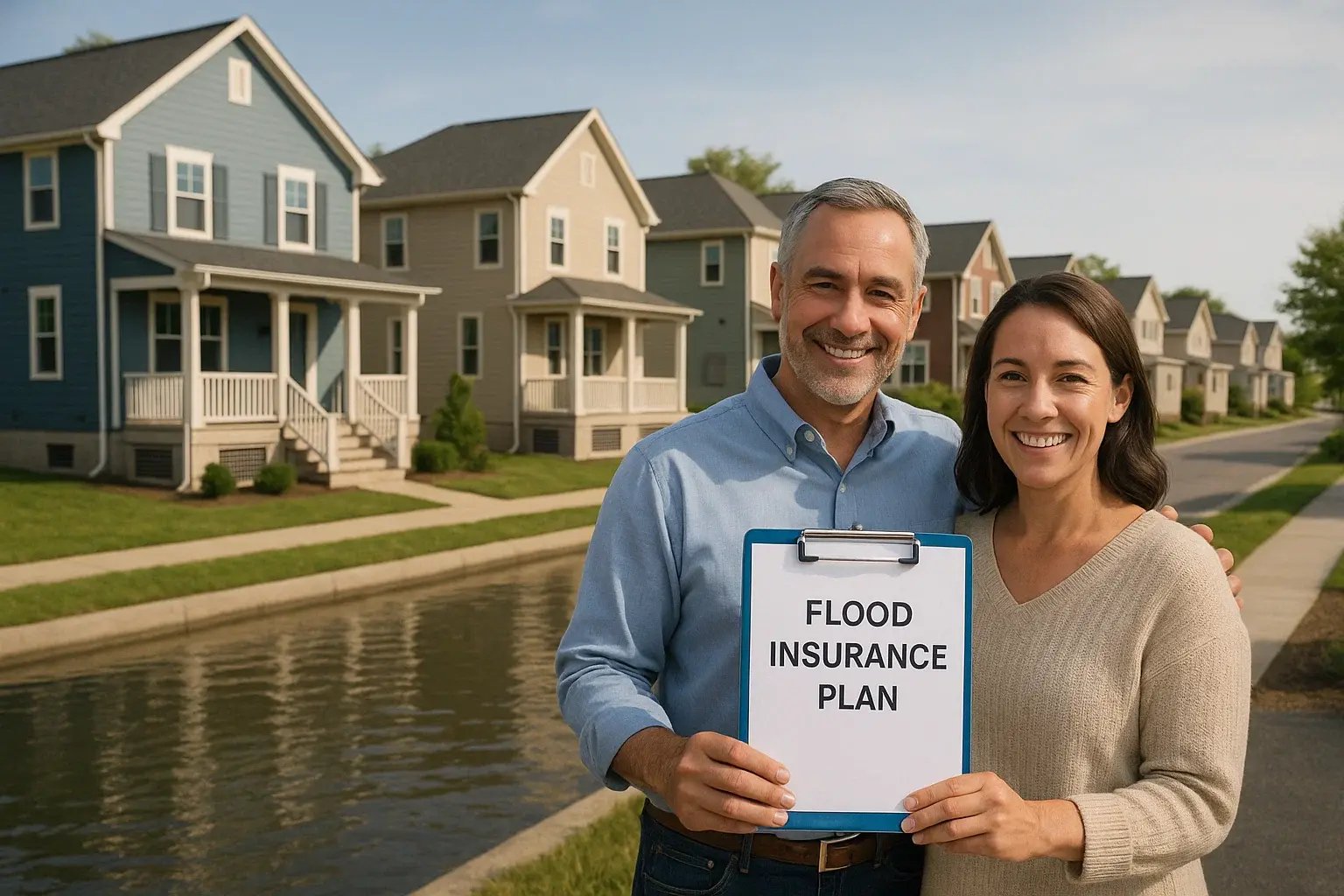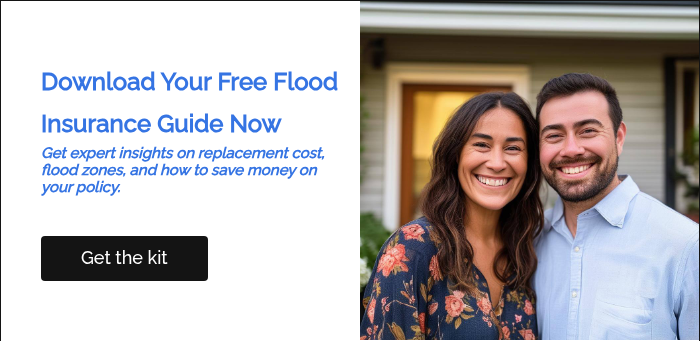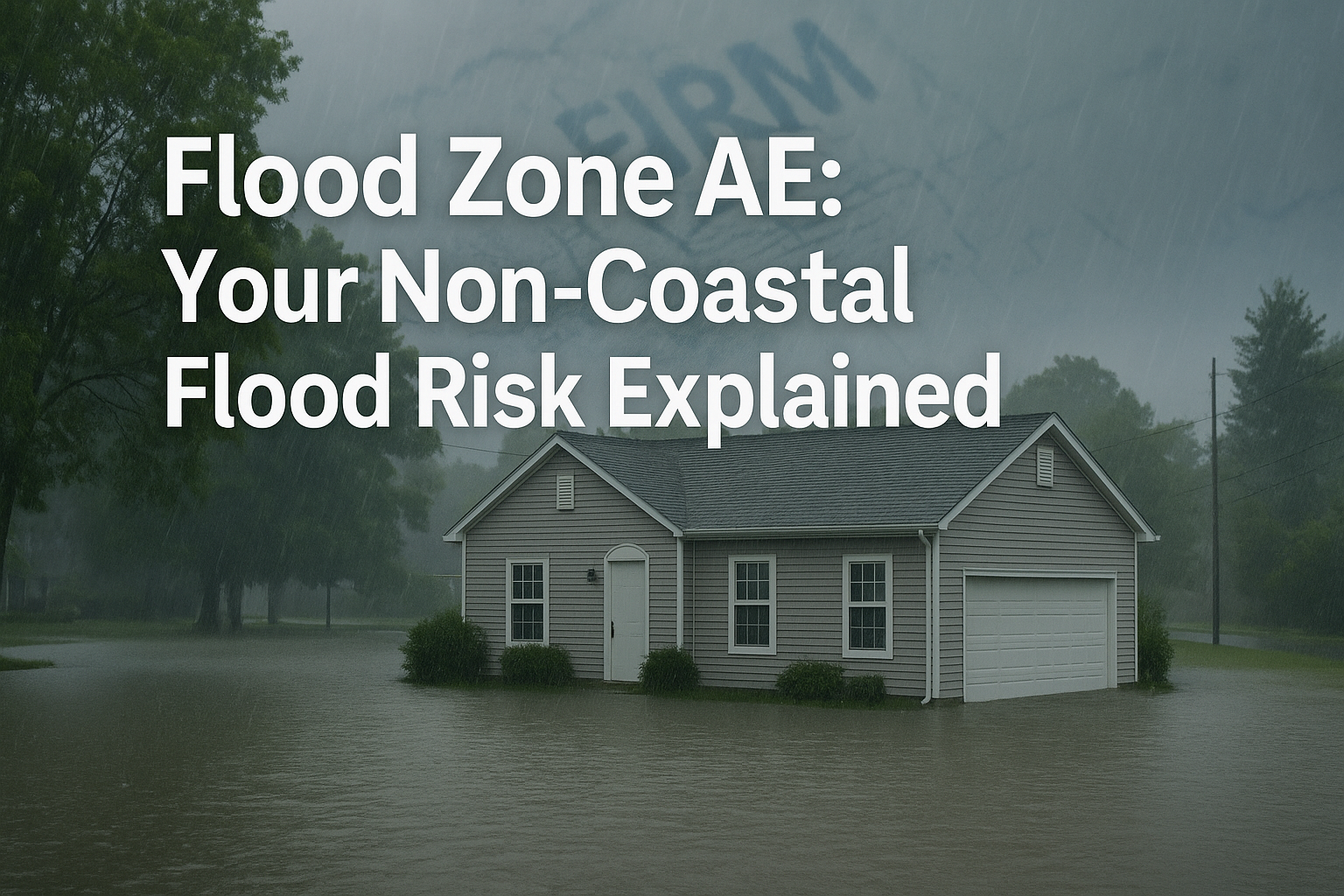What Are the Best Resources to Learn About Flood Insurance?
April 30th, 2025
9 min read
By Chris Greene

What Are the Best Resources to Learn About Flood Insurance?
Are you overwhelmed by confusing information about flood insurance?
Do you wish there was one trusted place that clearly explained how it works, what coverage you need, and how to avoid costly mistakes?
Flood insurance is essential—but trying to learn about it often leads to contradictory advice, outdated definitions, and dense government PDFs. That’s why so many homeowners, renters, and business owners feel stuck when trying to choose the right policy.
In this article, discover the best educational resources—from FEMA tools and online estimators to expert-led webinars and floodplain specialists—that can help you understand your coverage options with clarity and confidence.
Why It’s So Hard to Understand Flood Insurance
Flood insurance isn’t optional for millions of Americans, yet many find it confusing and intimidating. Here's why:
-
Too much noise, not enough clarity: You’re bombarded with resources, but few are written in plain English.
-
Technical terms create more fear than understanding: Terms like "Base Flood Elevation" and "FIRM zones" can overwhelm without proper context.
-
Coverage misunderstandings can cost you thousands: Many people discover they’re underinsured only after disaster strikes.
Best Government Resources to Learn About Flood Insurance
FEMA’s National Flood Insurance Program (NFIP)
The NFIP, managed by FEMA, remains the go-to source for factual, up-to-date flood insurance information.
-
Visit FloodSmart.gov for beginner-friendly guidance.
-
Access the FEMA Resource Library for brochures and fact sheets.
-
Key downloads include:
-
Homeowner’s Guide to the NFIP
-
What Does Flood Insurance Cover in a Basement?
-
Starting Your Recovery After a Flood
-
Interactive Tools That Teach You About Your Flood Risk
Flood Map Service Center (FEMA FIRM Tool)
Use the FEMA Flood Map Service Center to enter your address and identify your flood zone.
NFIP Premium Estimator
Available at FloodSmart.gov, this tool estimates your potential flood insurance cost based on your property details.
Flood Insurance Videos and On-Demand Webinars
FEMA Video Library
FEMA offers a curated playlist covering flood basics, mitigation techniques, and real-world case studies.
Webinars with Real Q&A
Recorded webinars hosted by FEMA and NFIP-certified experts address common flood insurance questions and practical scenarios.
Local Experts Who Help You Understand Your Risk
Local Emergency Management Offices
Your county or city emergency management office often provides:
-
Localized flood risk assessments and preparedness tips
-
Free consultations and flood maps
-
Live workshops on flood insurance awareness
Certified Floodplain Managers (CFMs)
These professionals specialize in interpreting flood maps and recommending property-specific strategies to reduce your flood risk.
How to Learn from a Flood Insurance Agent (Without a Sales Pitch)
Look for a Specialist, Not a Generalist
Work with agents experienced with NFIP policies. Ask them how frequently they write flood insurance policies—not all agents specialize in it.
Key Questions to Ask:
-
What flood zone is my property in?
-
What’s covered—and what’s not?
-
Can I reduce my premium without sacrificing protection?
-
What documents should I maintain for claims?
Conclusion: Your Next Step Toward Peace of Mind
Now you know where to find clear, authoritative resources that explain flood insurance—from how premiums are calculated to how mitigation can save you money.
Before reading this guide, you may have felt overwhelmed by flood insurance terminology and unsure where to start. That confusion can lead to costly mistakes like overpaying—or worse, being underinsured when flooding strikes.
Schedule a free educational consultation with The Flood Insurance Guru. We’ll help you apply these resources to your specific property, risk level, and budget.
At The Flood Insurance Guru, we specialize in helping property owners protect what matters most—with smart coverage and clear education. You don’t have to do this alone.
30% of flood insurance claims come from low-risk areas, so do not assume your home is safe.
When it comes to protecting your home from the unpredictable forces of nature, understanding your flood insurance options is crucial. Many homeowners find themselves navigating the complex landscape of flood insurance, especially when their property lies within a COBRA zone. You've asked, and we're here to answer all your pressing questions about flood insurance in these unique areas.
What Exactly is a COBRA Zone?
What makes COBRA zones different from other flood zones, and why does it matter for my flood insurance?
COBRA zones, or Coastal Barrier Resources System areas, are designated by the federal government to protect natural coastal barriers. Development in these zones is discouraged to conserve natural habitats, minimize loss of human life, and reduce federal expenditure on infrastructure and disaster relief. For homeowners, this means that obtaining federal flood insurance through the National Flood Insurance Program (NFIP) is not an option, making it essential to explore alternative insurance solutions.
Can I Get Flood Insurance in a COBRA Zone?
They Ask: If federal flood insurance isn't available in COBRA zones, what are my options for protecting my property?
You Answer: While properties in COBRA zones are ineligible for federal flood insurance, private flood insurance becomes a vital alternative. Private insurers offer policies designed to meet the unique needs of homeowners in these areas, ensuring you can secure the protection you need against flooding. It's crucial to work with an insurance agent who understands the intricacies of flood insurance policies in COBRA zones to find the best coverage for your home.
How Do I Know If My Property is in a COBRA Zone?
They Ask: How can I determine if my property is located within a COBRA zone and understand the implications for my flood insurance coverage?
You Answer: Identifying whether your property is in a COBRA zone is the first step in navigating your flood insurance options. You can use tools like the CBRS Mapper provided by the Fish and Wildlife Service or consult with a knowledgeable insurance agent. Understanding your property's location helps clarify your insurance options and ensures you're pursuing the right coverage for your situation.
What Should I Look for in a Flood Insurance Policy?
They Ask: What key factors should I consider when choosing a flood insurance policy for my property in a COBRA zone?
You Answer: When selecting a flood insurance policy in a COBRA zone, consider coverage limits, deductibles, and exclusions. It's also important to assess the insurer's reputation and the policy's provisions for claims handling. An insurance agent specializing in flood insurance can help you compare policies and choose one that offers comprehensive protection tailored to your needs.
Conclusion
Understanding flood insurance in COBRA zones doesn't have to be a daunting task. By asking the right questions and seeking expert advice, you can navigate the complexities of securing the right flood insurance for your property. Remember, protecting your home from flooding is about ensuring your peace of mind and financial security, regardless of where you live.
Navigating the Waters of Flood Insurance in COBRA Zones
When it comes to protecting your home from the unpredictable forces of nature, understanding your flood insurance options is crucial. Many homeowners find themselves navigating the complex landscape of flood insurance, especially when their property lies within a COBRA zone. You've asked, and we're here to answer all your pressing questions about flood insurance in these unique areas.
What Exactly is a COBRA Zone?
What makes COBRA zones different from other flood zones, and why does it matter for my flood insurance?
COBRA zones, or Coastal Barrier Resources System areas, are designated by the federal government to protect natural coastal barriers. Development in these zones is discouraged to conserve natural habitats, minimize loss of human life, and reduce federal expenditure on infrastructure and disaster relief. For homeowners, this means that obtaining federal flood insurance through the National Flood Insurance Program (NFIP) is not an option, making it essential to explore alternative insurance solutions.
Can I Get Flood Insurance in a COBRA Zone?
They Ask: If federal flood insurance isn't available in COBRA zones, what are my options for protecting my property?
You Answer: While properties in COBRA zones are ineligible for federal flood insurance, private flood insurance becomes a vital alternative. Private insurers offer policies designed to meet the unique needs of homeowners in these areas, ensuring you can secure the protection you need against flooding. It's crucial to work with an insurance agent who understands the intricacies of flood insurance policies in COBRA zones to find the best coverage for your home.
How Do I Know If My Property is in a COBRA Zone?
They Ask: How can I determine if my property is located within a COBRA zone and understand the implications for my flood insurance coverage?
You Answer: Identifying whether your property is in a COBRA zone is the first step in navigating your flood insurance options. You can use tools like the CBRS Mapper provided by the Fish and Wildlife Service or consult with a knowledgeable insurance agent. Understanding your property's location helps clarify your insurance options and ensures you're pursuing the right coverage for your situation.
What Should I Look for in a Flood Insurance Policy?
They Ask: What key factors should I consider when choosing a flood insurance policy for my property in a COBRA zone?
You Answer: When selecting a flood insurance policy in a COBRA zone, consider coverage limits, deductibles, and exclusions. It's also important to assess the insurer's reputation and the policy's provisions for claims handling. An insurance agent specializing in flood insurance can help you compare policies and choose one that offers comprehensive protection tailored to your needs.
Conclusion
Understanding flood insurance in COBRA zones doesn't have to be a daunting task. By asking the right questions and seeking expert advice, you can navigate the complexities of securing the right flood insurance for your property. Remember, protecting your home from flooding is about ensuring your peace of mind and financial security, regardless of where you live.
Navigating the Waters of Flood Insurance in COBRA Zones
When it comes to protecting your home from the unpredictable forces of nature, understanding your flood insurance options is crucial. Many homeowners find themselves navigating the complex landscape of flood insurance, especially when their property lies within a COBRA zone. You've asked, and we're here to answer all your pressing questions about flood insurance in these unique areas.
What Exactly is a COBRA Zone?
What makes COBRA zones different from other flood zones, and why does it matter for my flood insurance?
COBRA zones, or Coastal Barrier Resources System areas, are designated by the federal government to protect natural coastal barriers. Development in these zones is discouraged to conserve natural habitats, minimize loss of human life, and reduce federal expenditure on infrastructure and disaster relief. For homeowners, this means that obtaining federal flood insurance through the National Flood Insurance Program (NFIP) is not an option, making it essential to explore alternative insurance solutions.
Can I Get Flood Insurance in a COBRA Zone?
They Ask: If federal flood insurance isn't available in COBRA zones, what are my options for protecting my property?
You Answer: While properties in COBRA zones are ineligible for federal flood insurance, private flood insurance becomes a vital alternative. Private insurers offer policies designed to meet the unique needs of homeowners in these areas, ensuring you can secure the protection you need against flooding. It's crucial to work with an insurance agent who understands the intricacies of flood insurance policies in COBRA zones to find the best coverage for your home.
How Do I Know If My Property is in a COBRA Zone?
They Ask: How can I determine if my property is located within a COBRA zone and understand the implications for my flood insurance coverage?
You Answer: Identifying whether your property is in a COBRA zone is the first step in navigating your flood insurance options. You can use tools like the CBRS Mapper provided by the Fish and Wildlife Service or consult with a knowledgeable insurance agent. Understanding your property's location helps clarify your insurance options and ensures you're pursuing the right coverage for your situation.
What Should I Look for in a Flood Insurance Policy?
They Ask: What key factors should I consider when choosing a flood insurance policy for my property in a COBRA zone?
You Answer: When selecting a flood insurance policy in a COBRA zone, consider coverage limits, deductibles, and exclusions. It's also important to assess the insurer's reputation and the policy's provisions for claims handling. An insurance agent specializing in flood insurance can help you compare policies and choose one that offers comprehensive protection tailored to your needs.
Conclusion
Understanding flood insurance in COBRA zones doesn't have to be a daunting task. By asking the right questions and seeking expert advice, you can navigate the complexities of securing the right flood insurance for your property. Remember, protecting your home from flooding is about ensuring your peace of mind and financial security, regardless of where you live.
Navigating the Waters of Flood Insurance in COBRA Zones
When it comes to protecting your home from the unpredictable forces of nature, understanding your flood insurance options is crucial. Many homeowners find themselves navigating the complex landscape of flood insurance, especially when their property lies within a COBRA zone. You've asked, and we're here to answer all your pressing questions about flood insurance in these unique areas.
What Exactly is a COBRA Zone?
What makes COBRA zones different from other flood zones, and why does it matter for my flood insurance?
COBRA zones, or Coastal Barrier Resources System areas, are designated by the federal government to protect natural coastal barriers. Development in these zones is discouraged to conserve natural habitats, minimize loss of human life, and reduce federal expenditure on infrastructure and disaster relief. For homeowners, this means that obtaining federal flood insurance through the National Flood Insurance Program (NFIP) is not an option, making it essential to explore alternative insurance solutions.
Can I Get Flood Insurance in a COBRA Zone?
They Ask: If federal flood insurance isn't available in COBRA zones, what are my options for protecting my property?
You Answer: While properties in COBRA zones are ineligible for federal flood insurance, private flood insurance becomes a vital alternative. Private insurers offer policies designed to meet the unique needs of homeowners in these areas, ensuring you can secure the protection you need against flooding. It's crucial to work with an insurance agent who understands the intricacies of flood insurance policies in COBRA zones to find the best coverage for your home.
How Do I Know If My Property is in a COBRA Zone?
They Ask: How can I determine if my property is located within a COBRA zone and understand the implications for my flood insurance coverage?
You Answer: Identifying whether your property is in a COBRA zone is the first step in navigating your flood insurance options. You can use tools like the CBRS Mapper provided by the Fish and Wildlife Service or consult with a knowledgeable insurance agent. Understanding your property's location helps clarify your insurance options and ensures you're pursuing the right coverage for your situation.
What Should I Look for in a Flood Insurance Policy?
They Ask: What key factors should I consider when choosing a flood insurance policy for my property in a COBRA zone?
You Answer: When selecting a flood insurance policy in a COBRA zone, consider coverage limits, deductibles, and exclusions. It's also important to assess the insurer's reputation and the policy's provisions for claims handling. An insurance agent specializing in flood insurance can help you compare policies and choose one that offers comprehensive protection tailored to your needs.
Conclusion
Understanding flood insurance in COBRA zones doesn't have to be a daunting task. By asking the right questions and seeking expert advice, you can navigate the complexities of securing the right flood insurance for your property. Remember, protecting your home from flooding is about ensuring your peace of mind and financial security, regardless of where you live.
Topics:
























